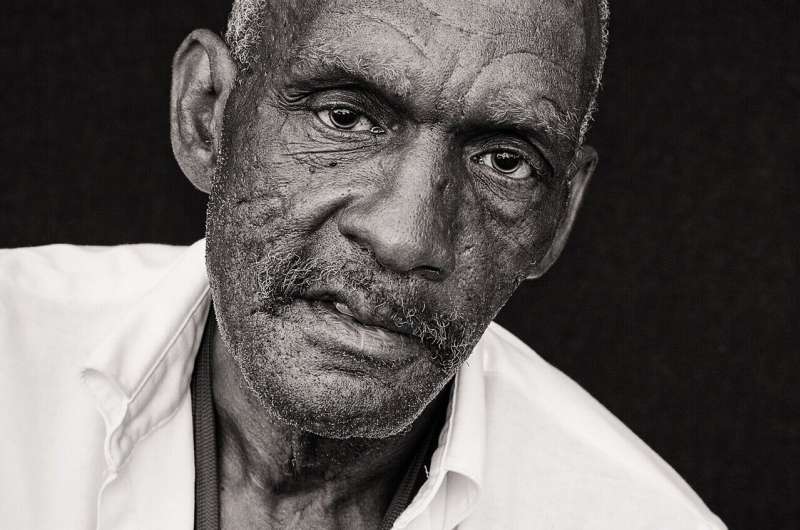This article has been reviewed according to Science X’s
editorial process
and policies.
Editors have highlighted
the following attributes while ensuring the content’s credibility:
fact-checked
peer-reviewed publication
trusted source
proofread

Daily and lifetime exposure to stress may cause wear and tear on the stress responses of Black Americans, blunting their biological stress response, a new University of Michigan study shows.
Kira Birditt, research professor at the University of Michigan Institute for Social Research, and colleagues found race differences in the links between lifetime stress exposure and daily cardiovascular reactivity that may reflect wear and tear on the stress response among Black Americans.
Structural inequities and systemic racism in the United States has had long-term implications for marginalized racial and ethnic groups. Black Americans, in particular, experience higher rates of hypertension and cardiovascular disease-related mortality than their white counterparts in part because of their greater exposure to stress across the life course.
And according to the new U-M study, lifetime exposure to greater stress may have implications for daily experiences of stress and cardiovascular reactivity, which may be mechanisms explaining these health inequities.
Birditt and her team sought to address a longstanding gap exploring the links between lifetime stress and daily cardiovascular reactivity to stress, identifying patterns of stress across the life course and whether those patterns were associated with differential exposure and cardiovascular reactivity to daily stress. The study results are published in The Journals of Gerontology: Series B.
The findings are consistent with the “weathering” hypothesis proposed by ISR researcher Arline Geronimus. Her theory posits that systemic issues such as structural racism contribute to a “weathering” of the Black population in the U.S., creating adverse health outcomes in a variety of areas.
“Black participants showed evidence of blunted reactivity to stress,” Birditt said. “Those that reported moderately high levels of stress across the life course showed less cardiovascular reactivity to daily life stress compared to white individuals.”
Blunted reactivity to stress may initially sound good or even desirable, but Birditt says that’s not necessarily the case. Failing to react to stress can be a significant health issue.
“It’s a sign of the dysregulation of the stress response,” she said. “Having repeated stress across a life course might cause individuals to have less of a reaction to stress when they should, because it’s all about the fight or flight response. It’s important to react, physiologically, at least a little, to stress.”
Participants were from the Stress and Well-being in Everyday Life Study in which 238 people (109 Black and 129 white, ages 33-93), drawn from the longitudinal Social Relations Study, reported life event stress in 1992, 2005, 2015 and 2018. Of those, 169 completed an ecological momentary assessment study in which they reported stress exposure every three hours, and 164 wore a heart rate monitor for up to five days.
To collect longitudinal data, Birditt and colleagues asked participants about a series of life event stressors they may have experienced over the past year, such as the loss of a family member, job changes or moving, in addition to tracking daily stresses over three-hour time periods. Daily stresses included things like feeling annoyed, hurt or irritated by interpersonal relationships.
The weathering suggested in Birditt’s study could have long-term health implications as previous studies have shown that blunted reactivity is associated with increased likelihood of developing chronic illness.
For future research, Birditt hopes to explore the long-term health implications of daily stress reactivity.
“I think it would be really important to understand how these daily stress reactivity patterns predict change in health over time,” she said. “It would be valuable to do another follow-up of these participants to determine whether they have experienced changes in their health, such as increased blood pressure or heart disease.”
More information:
Kira S Birditt et al, Implications of Cumulative Life Event Stress for Daily Stress Exposure and Cardiovascular Reactivity Among Black and White Americans, The Journals of Gerontology: Series B (2023). DOI: 10.1093/geronb/gbad054
Citation:
Lifetime of stress takes toll on cardiovascular health of Black Americans (2024, April 5)
retrieved 5 April 2024
from https://medicalxpress.com/news/2024-04-lifetime-stress-toll-cardiovascular-health.html
This document is subject to copyright. Apart from any fair dealing for the purpose of private study or research, no
part may be reproduced without the written permission. The content is provided for information purposes only.
Explore further


